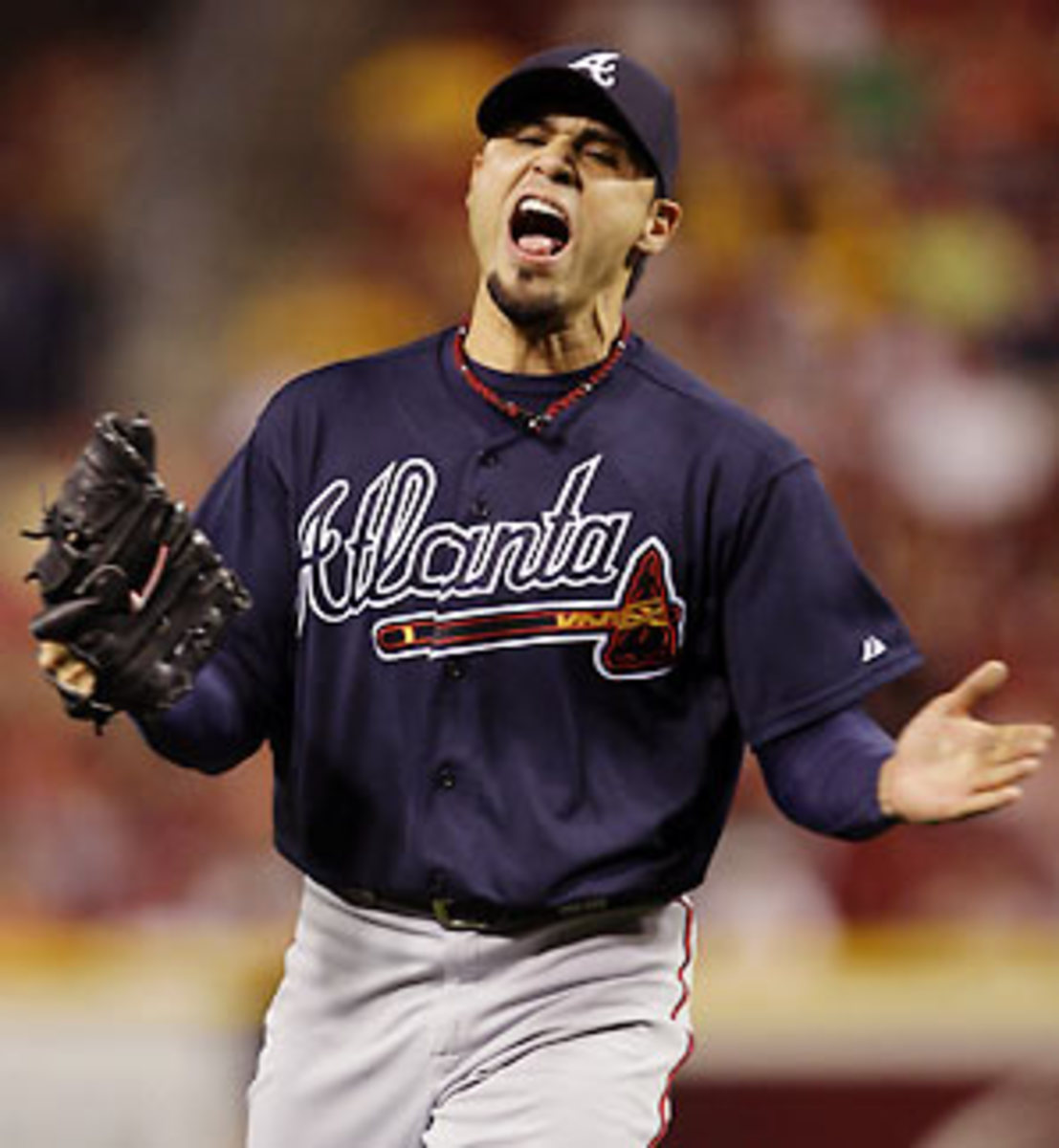Closer-by-committee is getting no complaints for Braves, Rays
A baseball year is long and eventful, and it's easy to forget that what doesn't happen can be as important as what does. The significant fact about the sport's drug testing program, for instance, is how rarely it catches anyone taking drugs. And in its first full season instant replay has mainly been notable for how unnotable it has been. More important for the game on the field this season, though, is something else that hasn't happened: Two contending teams are closing games by committee, and no one has cried heresy.
The first is the Atlanta Braves. They don't have a winning record, but sit four games out in the National League East and could make rapid gains by fielding live players in the outfield. Manager Bobby Cox is using left-hander Mike Gonzalez and right-hander Rafael Soriano essentially interchangeably -- Gonzalez has 13 save chances, Soriano 11 -- and getting fine results.
The second is the Tampa Bay Rays, who, even if they're in third place in their division, may be the best team in the majors. (They've outscored opponents by the second-highest margin in baseball and play much stronger competition than the Los Angeles Dodgers, who rank first.) Ten different Rays pitchers, from famous veteran Jason Isringhausen to Dale Thayer, whose greatest virtue may be his fabulous moustache, have had a save chance this year. Six have had at least two.
As the story goes, a team that declines to slot its pitchers into rigid roles is supposed to suffer all sorts of problems, as anguished relievers find themselves unable to prepare and mentally broken by the idea of pitching with the game on the line. The Rays, though, like the Braves, aren't suffering at all. According to WPA/LI, one advanced measure, theirs may even be the best 'pen in the game.
One wouldn't want to make the Rays out to be more unconventional than they are, however. Ace lefty J.P. Howell is getting most of the chances, and rightly so -- one of the real marvels of baseball, he has run up a 2.01 ERA since the beginning of last year and struck out 139 in 129.2 innings while serving straight slop, including a fastball that may touch 90 on days when he's feeling really good. Still, the team has yet to name him their capital-C closer, something he explains as well as anyone might. "I think just naming a closer would limit our bullpen," he recently told MLB.com.
This wasn't planned -- nominal closers Isringhausen and Troy Percival are both injured -- but it also isn't at all out of character for the Rays. Last year they won the pennant with four different pitchers earning the team's last four saves in the regular season and a fifth, rookie David Price, emerging as a shutdown closer in October. Howell's comments, in addition to showing that unlike some of his peers he understands the public relations value of humility, reflect something of an organizational philosophy, a recognition that a pitcher's job is to get outs whenever the manager asks him to get them rather than to fulfill a certain marquee role.
This sort of approach is, of course, highly unusual, even more so than many fans tired of the need for even teams with no especially distinguished relievers to anoint someone or other as the designated earner of saves may realize. In the last five years not one playoff team save the 2008 Rays has employed anything remotely like a closing committee, and the last successful team to make a point of doing so was the 2003 Boston Red Sox. They famously gave up on it halfway through the season and then spent a lot of money on a top closer, Keith Foulke, that winter.
Which brings us to the significant point: Most of the reason that the Red Sox gave up on their experiment was that it wasn't successful, because they had a lot of lousy pitchers. Part of it, though, was that there was a lot of loud whining from the press and the fans about how the team was poking the third rail with a metal stick by not naming Chad Fox or Luis Tiant or whoever as their closer.
There hasn't been much, if any, of that kind of whining in Atlanta or Tampa Bay this year. Of course the South isn't New England, and of course the great Cox and the smart set running the Rays -- who are generally regarded around St. Petersburg with something like the spooked reverence that remote villagers might accord a child who speaks in tongues -- are given more deference than Theo Epstein, Bill James and Co. were in their first year formally running the Fenway show. Still, that two teams in the playoff race can so brazenly ignore a sacred chapter in the sport's famous Book and get no stick at all for it is something new and intriguing.
All those who militate for such bullpen reforms as not feeling the need to designate a single closer have really ever argued is that teams should use a strategy that fits their personnel. That can mean running out Joe Nathan or J.P. Howell every time a save chance comes up. It can also mean handing the ball to an obscure pitcher like Randy Choate, or splitting work between two more or less equally talented pitchers to take advantage of matchups. It's hard to say why this was ever controversial, but at the year's halfway point it's starting to look as if it's less so than it has been in a very long time.






